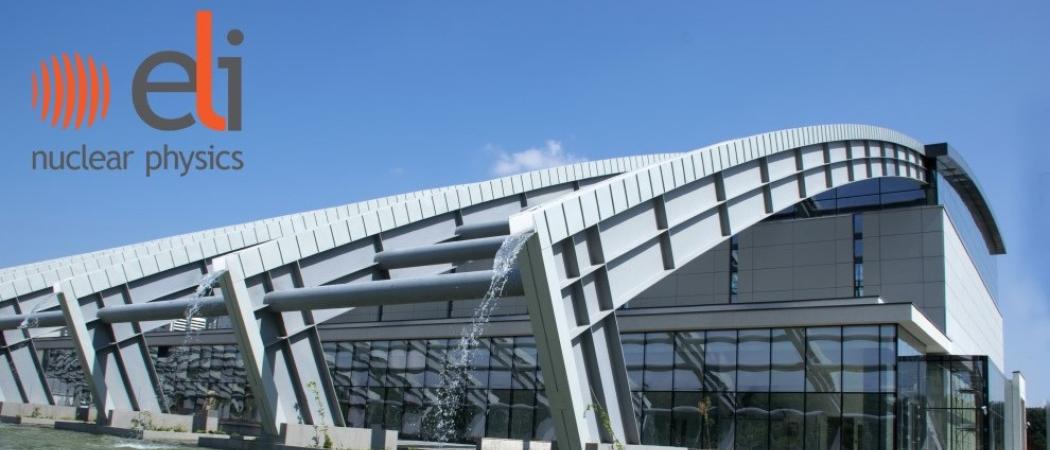Litigation has delayed full implementation of the largest research infrastructure in central and eastern Europe

ELI-NP is the largest research infrastructure in central and eastern Europe
A legal battle between Romania’s nuclear research institute and a European consortium over a €67 million contract for the installation of a custom gamma beam at the Extreme Light Infrastructure - Nuclear Physics (ELI-NP) research facility in Bucharest, could mean it loses money from structural funds, EU commissioner for regional policy Corina Crețu, has warned.
Romania’s national institute for nuclear physics and engineering (IFIN-HH) has cancelled a €67 million contract with the EuroGammaS consortium over delays in the construction and installation of a gamma beam at ELI-NP, the largest research infrastructure in central and eastern Europe.
The delay caused by the legal battle threatens to derail the plan for completing the project during the EU’s current budgetary cycle, ending in 2020. Most of the components of the project are already in place and researchers are expected to start doing experiments as early as 2019, but there is a risk that costs for work left unfinished at the end of 2020 will not be covered by the EU.
“We have to avoid a situation that, in addition to financial losses, would affect the credibility and reputation of Romanian researchers,” said Crețu after a meeting with Romanian minister for research and innovation Nicolae Hurduc.
When completed, the ELI-NP laser facility will have the most intense beamline in the world. It is being built at a total cost of €300 million, most of which is from EU structural funds, with only a small portion being covered by the Romanian government.
The EuroGammaS consortium asked to renegotiate the contract with the Romanian institute because it was unable to meet the deadline for installing the gamma beam at ELI-NP that was agreed in 2014 when the procurement was signed. According to EuroGammaS, the delay was “due to factors completely out of [their] responsibility” and the gamma beam could not be installed because the ELI-NP building “did not seem compliant.”
Delays in the construction of such unique machines are normal and the legal haggle could have been avoided, according to Bruno Quarta, director general of Italian Institute of Nuclear Physics (INFN), which leads to EuroGammaS consortium. “We believe we could have delivered completely if the building in Măgurele had been compliant” he told Science|Business.
ELI-NP representatives told Science|Business that the building has been thoroughly tested by experts and that it “complies with the conditions and parameters that were assumed when the contract was signed.”
After the two parties failed to agree, on 26 October the consortium went to court and asked for an extension and reimbursement of €1.8 million it had paid in fines for late delivery up to June 2018.
The IFIN-HH in Bucharest interpreted the resort to the law as an unwillingness to deliver the equipment and unilaterally terminated the contract on 16 November. EuroGammaS has, “refused, completely unjustif[iably], the execution of contractual obligations,” IFIN-HH said in a statement. The Romanian institute says the litigation could put the entire ELI-NP project at risk of losing its EU funding and that it has “a vast contractual correspondence” to prove it tried to settle the matter amicably.
In response, the consortium sued IFIN-HH in Bucharest and asked the court to cancel the termination.
EuroGammaS claims termination of the contract will bankrupt some of the companies working on the delivery of the gamma beam. In addition to INFN, the consortium includes the Sapienza University of Rome, the French National Centre for Scientific Research and a number of companies in Italy, France, Sweden. “Some of these companies will face severe difficulties and might even close down if this deal fails,” Quarta said.
More than 80 per cent of the gamma beam has already been built and most components are on site ready to be installed. However, the consortium has not been allowed to start the assembly inside the ELI-NP building.
EuroGammaS is now waiting for the main court decision in January 2019. “We have complete trust in Romanian justice,” Quarta said. “We hope to be allowed to continue to install the machine.”
In the meantime, IFIN-HH says it is, “analysing options for signing a new contract for the delivery of the gamma beam.”
Crețu is still hoping for an amicable solution and has invited all parties to a high-level meeting in Brussels with EU research commissioner Carlos Moedas.





 A unique international forum for public research organisations and companies to connect their external engagement with strategic interests around their R&D system.
A unique international forum for public research organisations and companies to connect their external engagement with strategic interests around their R&D system.